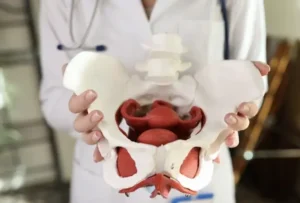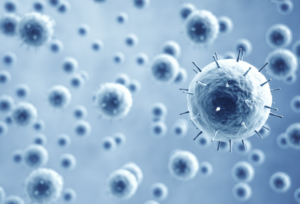If you are planning a pregnancy or just thinking about it, it is never too early to start getting ready to conceive. Did you know that up to 15% of couples face infertility or have difficulties on their way to becoming parents. In case your most cherished dream is to get pregnant, we have some tips to boost your fertility naturally.
1. Regular health and fertility checks
Before getting pregnant, see your doctor and ask about preconception health care. Understanding your health history and any medical conditions can help a lot in boosting your fertility.
Taking a scientifically approved prenatal supplement is one more way to have a child sooner. Remember that every woman is unique and needs tailored ones. Before choosing the correct supplement for you it’s important that you talk to a professional.
Visiting doctors and making several health tests in different places might be too complicated, but necessary. You can also get checks you need, personalized recommendations and select scientifically approved prenatal supplements here.
And do not forget to visit your dentist.
2. Conception diet for your unique hormonal health
Supporting your health with all the necessary nutrients and vitamins should be your next target. Add more nuts, veggies, whole grains, leafy greens and low-fat dairy products to your shopping list.
Of course, recommendations like cutting back on chips, soda and baked goods will not be new, however, they still work well.
Remember we all are different in our health profiles and vitamin deficiencies. Hormonal profile of every woman is unique. When looking for a healthy pregnancy diet it is advisable that you check your micronutrient levels screenme.co.uk to get tailored nutrition recommendations.
3. Eat fewer carbs if you have PCOS and increase your fiber intake
If you have never received this diagnosis from your gynecologist, you are lucky. 4% – 20% of women of reproductive age face PCOS all over the world and can experience fertility problems because of it. Following a lower carb diet where less than 45 percent of calories come from carbs is generally recommended here.
As a benefit, this eating plan may help you maintain a healthy weight, which is also important for fertility increase, stabilising insulin levels and regular menstrual cycle.
Lastly, increasing fiber intake can help you to support your gut health, hormonal balance and fertility health.
4. Reduce exposure to endocrine disruptors
Some chemicals can act on your endocrine system and disturb the hormonal balance of the body. During the time you are trying to conceive the goal is to reduce exposure to these chemicals. Of course, we cannot always be 100% away from the unwanted chemicals, however starting with your kitchen can help a lot.
Two of the most common chemicals that affect hormonal activity, include:
- Bisphenol A (BPA): Manufacturers use BPA in some plastics. in the lining of canned foods and other food-packaging materials, certain polycarbonate plastic bottles, and cash register receipts
- Phthalates: Phthalates are chemicals found in fragrance,” PVC plastic, toys, plastic wrap and plastic containers.
5. Avoid habits, that cause fertility problems
Quit smoking
Smoking can negatively affect your chances of conceiving as well as raise the likelihood of problems like premature birth, low birth weight and miscarriage. Ask your partner to support you here (while asking for their support you can also suggest they read our article about male fertility). Secondhand smoke is also dangerous for you and the future baby, so try to avoid places where people smoke a lot.
No alcohol
Drinking is also not included in a healthy pregnancy diet. Research has shown that women who don’t drink are more likely to fall pregnant faster. Alcohol during pregnancy raises the chances of birth defects and learning problems later in a child’s life. And again, the same applies for your partner’s habits.
Stopping drinking when you decide to start trying to conceive helps avoid exposing your embryo to alcohol in the early days of a pregnancy.
Cut Back on Caffeine
There are no strict caffeine instructions you have to follow. To support your fertility rates 200 mg of caffeine per day is the recommended maximum. That’s about one 12-ounce cup of coffee or four 8-ounce cups of tea. Go for decaf drinks, matcha latte, cacao or warm spiced milk instead.
6. Sports and pregnancy
Even if you are not the biggest fan of exercising, now is the best time to find some activities for you.
Although intense exercising can actually prevent a regular cycle and pregnancy, having everyday regular walks, light cycling or doing some low intensity fitness activities will be a great support for your fertility, heart and pregnancy preparation – triple bonus!
7. Practice safe sex and ensure vaginal microbiome health
Intimate health deserves care both physically and mentally. Practising safe sex will be a benefit here. Do not forget to check your vaginal microbiome health to reduce risks of miscarriage and other issues in the future. ScreenMe Vaginal health test is the easiest way to be absolutely sure.
8. Protect your mental health to conceive
Trying to get pregnant sometimes can be a very stressful journey. Give yourself some time to relax, concentrate on hobbies and do what you really enjoy.
Remember that your life is not defined by fertility even if you are trying to conceive for a while.
There are some tips that can be helpful to protect your mental health:
Mental support tips while trying to get pregnant:
- Re-focus on something else (find new hobbies, do sports, visit friends and beloved ones). When you succeed in your pregnancy journey, you will possibly have less time for these things later;
- Meditate or practice some relaxation techniques;
- Visit a doctor or take a home fertility check;
- Openly discuss your worries with your partner;
- Take a small trip or a full on vacation;
- Believe that your time is coming.
Want to know what to do next? You can use our online tool to choose right ScreenMe package to help with your fertility plan






